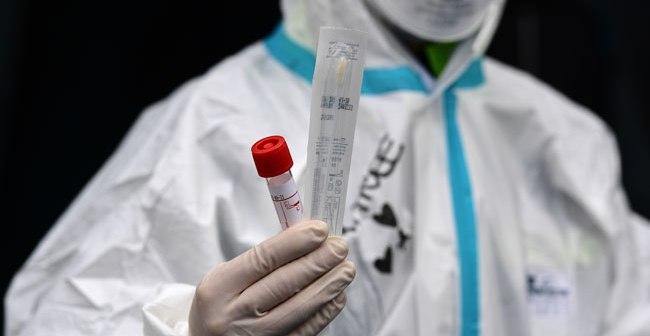requesting for submission of COVID-19 test kits by manufactures of their sales representatives in the country.
“A total of eleven 11 in-vitro Diagnostics; one Polymerase Chain Reaction based kit, nine Rapid Test Kits (RTKs) two Antigen based seven Antibody based kits and one Viral Transport Medium (VTM) were received.
“They were received for validation at MLSCN Public Health in-Vitro Diagnostics Control Laboratory, Yaba, Lagos.
“However, out of the seven Antibody based RTKs submitted for validation, only four of the RTKs met validation inclusion criteria; the validation of PCR based and Antigen based Rapid Test Kits are ongoing,’’ he said.
According to him, the results from validation show that four COVID-19 Rapid Test Kits validated, fell below the generally acceptable minimum for Intro-Diagnostic (IVD) Sensitivity of 95 per cent.
“Therefore, none was approved for the purpose of diagnosis and surveillance in Nigeria.
“It became clear from the standardised validation done by MLSCN that manufacturers’ claims as contained in the product insert about sensitivity, specificity and accuracy are not always correct.
“In this case, we observed a significant standard deviation, an indication that Rapid Test Kits that are not validated poses higher risks of providing false positive and negative results.
“Though, all the Rapid Test Kits validated, fulfilled the requirement to perform laboratory test without the need of equipment and were able to produce results in less than two minutes,* he said.
However, the registrar said for a rapid test to be deployed for disease surveillance and diagnosis, it should be able to detect a disease-causing agent when it is present and to return a negative result if the causing agent is absent.
“In order words, it must possess good sensitivity so it can detect the presence of disease.
“It must also possess good sensitivity so that no interfering substances can lead to a false positive instead of negative results in the absence of etiological agent of the disease.
“Therefore, for a kit to be considered reliable for laboratory diagnosis and disease surveillance, the kit should have a high sensitivity and specificity.
“A kit performing very well in one of these characteristics without the other renders it unsuitable for diagnostic testing, It is also unsuitable if both characteristics are low,’’ he said.
In addition, Erhabor said the kits did not meet the expected performance characteristics of sensitivity and specificity to qualify their deployment for the purposes of testing in disease surveillance and routine diagnosis.
“The four rapid test kits validated so far are not approved for the purpose of diagnosis and surveillance of SARS-CoV-2 infection in Nigeria.
“They are therefore not approved for marketing in Nigeria; No SARS-COV-2 Rapid Test is currently approved for use in Nigeria.
“We are using this opportunity to caution against the use of any non-validated Rapid Kits for COVID-19 testing in Nigeria as this will attract sanctions in accordance with the law,’’ he said.
According to him, validation of other Rapid Test Kits for SARS-COV-2 infection is ongoing, as Nigerians will be informed when suitable test kits meet minimum validation requirements.
“MLSCN assures the Federal and State Ministries of Health and indeed the government of Nigeria of its commitment to ensuring quality healthcare delivery as enshrined in the statute books,’’ Erhabor said.
The News Agency of Nigeria (NAN) reports that Medical Laboratory Science Council of Nigeria (MLSCN) is a Federal Government Statutory Regulatory Agency established by Act 11 of 2003.
source: DailyTimes

 The Medical Laboratory Science Council of Nigeria (MLSCN) says it has validated four Rapid Test Kits to determine their suitability for testing SAR-COV-2 infection popularly known as COVID-19 in the country.
The Medical Laboratory Science Council of Nigeria (MLSCN) says it has validated four Rapid Test Kits to determine their suitability for testing SAR-COV-2 infection popularly known as COVID-19 in the country.




